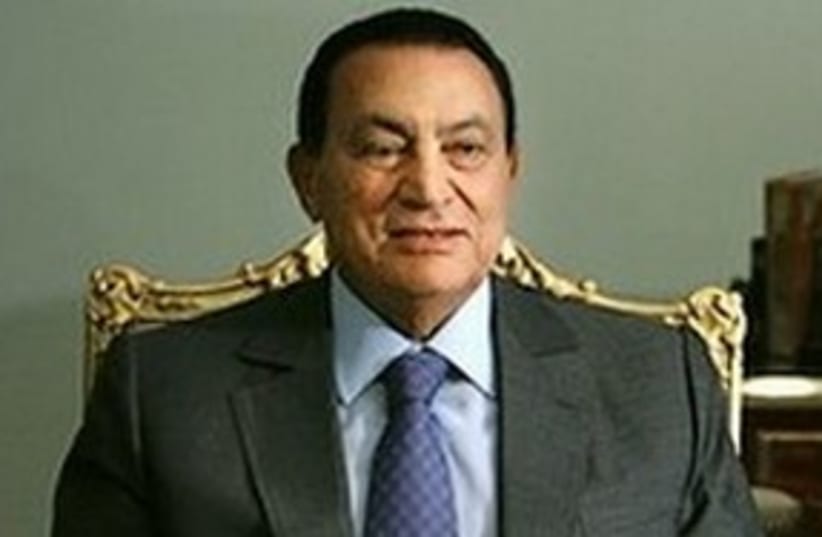RELATED: Egypt government seeks extension of emergency lawEgypt rebuffs US criticism of emergency lawThe Egyptian Organization for Human Rights (EOHR) said that the new format of the emergency law “still contains aspects that threaten the rights and freedoms for all citizens, without distinction, or limiting measures on the perpetrators of crimes of terrorism.”“The law retained the establishment of special courts and military courts to try civilians on any of the crimes referred by the President of the Republic,” EOHR said in a statement. “EOHR insists on the need to abolish the state of emergency and return to constitutional legality.”But Dr. Gamal Soltan, director of the Al-Ahram Center for Political and Strategic Studies in Egypt, argued that in a larger context the extension should be seen as a positive move. “Some credit should be given to the government,” he told The Media Line. “For the first time we have a legal commitment, which became a part of the law, that would limit the applicability of the law to certain crimes related to drug trafficking and terrorism,” he said. “In the past, there was an oral commitment to limit the usage of the law, but now it became part of the law, so it’s a move forward.” “The best case scenario would have been new legislation dealing with terrorism and removing all mention of emergency laws altogether, because the mere presence of the words ‘Emergency Law’ is poisoning the public atmosphere,” he continued. “That didn’t happen, but hopefully this will happen soon. In the meantime, we shouldn’t underestimate the importance of this new legal commitment to limit the application to terrorism.”Soltan said the extension of the law is likely to affect the popularity of the ruling NDP party in the upcoming legislative elections, which will have to prove to the voters that the law is not being applied arbitrarily. “The renewal of the law puts a burden on the NDP,” he said. “It needs to market the law and demonstrate to the public that it is qualitatively different, even though the measures are still there. It won’t help improve the NDP’s image unless they launch an effective campaign to explain the difference, otherwise it will be used by the opposition to mobilize more support and criticize the NDP.” Morayef had a different take on the link between the law and the upcoming elections. “It’s not a question of gaining more support,” she said. “Rather, the Emergency Law is used as a tool to crack down on the opposition and it’s a very effective tool. They can define terrorism extremely broadly.”The law has been applied in frequent crackdowns on the Muslim Brotherhood and other political opponents. Although the arrests are justified by the authorities as a matter of national security, they are construed by critics as being a tool to silence the opposition.
Egypt’s extension of Emergency Law draws criticism
Egyptian opposition groups bash decision to extend 29-year-old emergency law for another two years.

RELATED: Egypt government seeks extension of emergency lawEgypt rebuffs US criticism of emergency lawThe Egyptian Organization for Human Rights (EOHR) said that the new format of the emergency law “still contains aspects that threaten the rights and freedoms for all citizens, without distinction, or limiting measures on the perpetrators of crimes of terrorism.”“The law retained the establishment of special courts and military courts to try civilians on any of the crimes referred by the President of the Republic,” EOHR said in a statement. “EOHR insists on the need to abolish the state of emergency and return to constitutional legality.”But Dr. Gamal Soltan, director of the Al-Ahram Center for Political and Strategic Studies in Egypt, argued that in a larger context the extension should be seen as a positive move. “Some credit should be given to the government,” he told The Media Line. “For the first time we have a legal commitment, which became a part of the law, that would limit the applicability of the law to certain crimes related to drug trafficking and terrorism,” he said. “In the past, there was an oral commitment to limit the usage of the law, but now it became part of the law, so it’s a move forward.” “The best case scenario would have been new legislation dealing with terrorism and removing all mention of emergency laws altogether, because the mere presence of the words ‘Emergency Law’ is poisoning the public atmosphere,” he continued. “That didn’t happen, but hopefully this will happen soon. In the meantime, we shouldn’t underestimate the importance of this new legal commitment to limit the application to terrorism.”Soltan said the extension of the law is likely to affect the popularity of the ruling NDP party in the upcoming legislative elections, which will have to prove to the voters that the law is not being applied arbitrarily. “The renewal of the law puts a burden on the NDP,” he said. “It needs to market the law and demonstrate to the public that it is qualitatively different, even though the measures are still there. It won’t help improve the NDP’s image unless they launch an effective campaign to explain the difference, otherwise it will be used by the opposition to mobilize more support and criticize the NDP.” Morayef had a different take on the link between the law and the upcoming elections. “It’s not a question of gaining more support,” she said. “Rather, the Emergency Law is used as a tool to crack down on the opposition and it’s a very effective tool. They can define terrorism extremely broadly.”The law has been applied in frequent crackdowns on the Muslim Brotherhood and other political opponents. Although the arrests are justified by the authorities as a matter of national security, they are construed by critics as being a tool to silence the opposition.